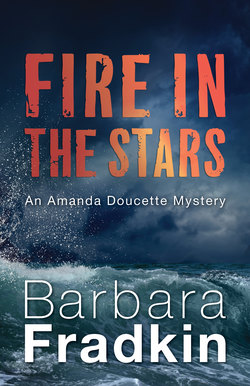Читать книгу Fire in the Stars - Barbara Fradkin - Страница 11
На сайте Литреса книга снята с продажи.
Chapter Eight
ОглавлениеWithin seconds, Corporal Biggs was on the phone to the RCMP Major Crimes Unit in Corner Brook for advice on how to proceed. Judging from his tense, red face, Chris suspected Biggs had never faced a murder investigation in which the trail of blood did not lead straight to the perpetrator in the next room.
It was remotely possible that the deceased had not been murdered but had died instead from some misadventure or illness on the boat, and his companions had attempted a primitive burial at sea. If so, of course, they should have reported the death the moment they landed ashore. That was Biggs’s first question to Corner Brook. No such deaths had been reported, Corner Brook replied, and advised him to sit tight until they could mobilize the Major Crimes Unit.
While Biggs was on the phone, Chris rummaged carefully through the man’s pockets, finding nothing other than a sodden paper with some illegible printing scrawled on it. He knew the search went against protocol, but he doubted much forensic evidence would be left on the body after its watery travels. He stuffed the paper back and busied himself taking close-up shots of the body, particularly elements that might help with identification — the garish jacket, the dirty shoes, and, most importantly, the man’s face.
He suspected they were in for a long night. Amanda had already texted him multiple times to ask whether the body was Phil. He was finally able to reassure her.
“Whew!” she replied. “Then who is it?”
“Don’t know yet,” he said.
He was just finishing up the photos when Biggs reappeared. The man seemed calmer now that he had sent the problem higher up. “They’re sending the helicopter over from Moncton to evacuate the DOA to St. John’s, and forensics and major crimes teams will drive up from Corner Brook in the morning to head up the investigation. Meanwhile, they instructed us to bring the body onto the pier so the medical examiner can do a preliminary examination, and to take witness statements from the crew and harbour staff so folks can go home. We’re to keep the scene secured.”
Chris stepped forward. “I can take statements, sir.”
“Let’s get the poor bugger off the boat first.”
It was almost midnight by the time the officers managed to hoist the body, wrapped in the tarp, off the boat deck and onto the pier, where they laid it out under the bright RCMP spotlights. Chris took more photos while the medical examiner, who had been keeping warm in his car, re-emerged for a closer look. He lifted the clothing, moved the body carefully from side to side, and probed it for broken bones and lacerations. Then he took a temperature reading and used a powerful flashlight to look into the man’s eyes, ears, and mouth. Finally he pressed hard on the victim’s chest. Only a faint gurgle and a trickle of foam escaped his lips.
As he worked, he dictated into his iPhone and Chris bent close to catch every word. “Victim is an adult white male estimated age twenty-five to forty years, approximately six feet, thin build. There are no obvious broken bones or signs of trauma, only superficial lacerations on his exposed flesh that appear consistent with marine feeding. He appears malnourished and has had several teeth pulled. Health and dental care seem to have been poor.”
“That goes along with the shoes and clothes,” Chris said to Biggs, who was observing beside him. “This is not a rich guy.”
“Not a tourist, either,” said the skipper. “Look at his hands. Calloused, nails broken off. This feller did hard, dirty labour.” He held out his own hands. “Just like my hands. You never get the dirt and slime out of them.”
“A fisherman, then?” Chris asked.
“Not in them clothes.”
The doctor cast them an annoyed glance before resuming his dictation in a louder voice. “Body temp is five degrees, probably about the same as the ambient water temperature where he was. Where was that?”
“We was 250 kilometres northeast. I gave Biggs here the coordinates.”
“There’s no visible mud or ocean silt in his mouth or ears, and rigor is minimal. At those temps, that’s not unexpected, but those two facts taken together, I’d say he wasn’t in the water too long.”
“Can you tell how he died?” Biggs said.
The doctor sat back on his heels. “No water in his lungs. Now, cardiac arrest or laryngeal spasm could have killed him when he entered the cold water …”
“But he could have been dead before he hit the water?”
“That’s one possibility of several.” He straightened with a creak and a groan. “Well, I’ve done what I can. The autopsy in St. John’s should tell us more, but meanwhile you can treat the death as suspicious.”
Chris looked over at the ring of townspeople still pressed against the tape. A few had departed but most waited for news, worried about family and loved ones up and down the coast.
“How about I show the photos to the boat crew and the locals, sir. See if anyone recognizes him or has any relevant information. Then they can go home.”
“Good idea.” Biggs gestured to the constable on guard. “Send the photos to Leger too and we’ll split up the interviews. It’s going to be a long night.”
People crowded around as Chris approached. Relief showed on their faces as one by one they shook their heads. They didn’t know who the dead man was, but a few echoed Norm Parsons’s belief that he was not a fisherman, indeed not likely even a native Newfoundlander.
